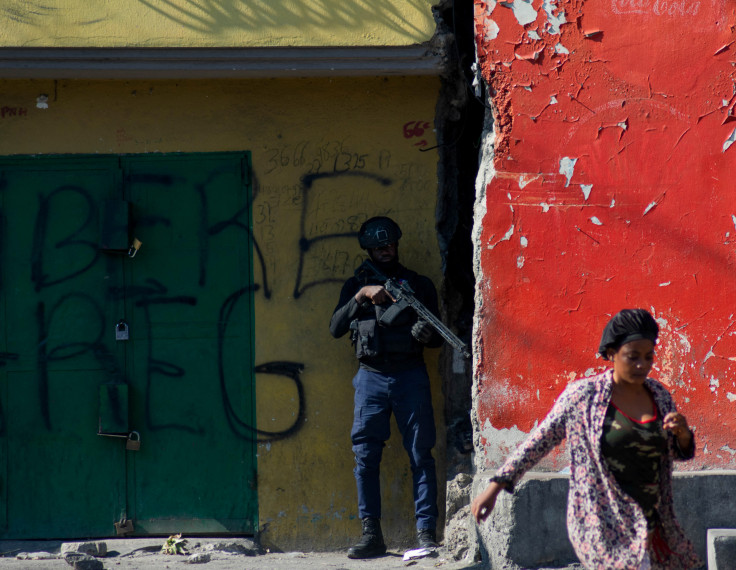
Haitian gangs now have "near-total control" of the country's capital, the United Nations is warning, as the transitional government continues to be unable to contain the criminal groups.
Ghada Fathy Waly, executive director of the U.N. Office on Drugs and Crime, told the body's Security Council that about 90% of Port-au-Prince is now under gang control. He added that areas that had so far escaped violence, like southern Haiti, are now seeing sharp increases in violence.
"And in the east, criminal groups are exploiting land routes, including key crossings like Belladere and Malpasse, where attacks against police and customs officials have been reported," the official added.
UN Assistance Secretary-General Miroslav Jenca added that the "ongoing gang encirclement of Porg-au-Prince is "pushing the situation closer to the brink." ""Without increased action by the international community, the total collapse of state presence in the capital could become a very real scenario," he added.
The transitional government has attempted to mount counter attacks, recently hiring mercenaries that are operating explosive-laden drones. According to a report by the National Human Rights Defense Network and picked up by InSight Crime, drone operations have killed at least 300 gang members and wounded 400 more.
The effort by the cornered government began months ago with the hiring of U.S. military contractor Erik Prince to help its forces. The Washington Post reported in April about the effort to deploy weaponized drones.
InSight Crime added that the attacks began as gangs were seeking to advance towards the offices of the Prime Minister and the Transitional Presidential Council. Other neighborhoods under their control have then come under fire as well.
The outlet noted that there is not much information about who oversees the mission, likely given there is no clear legal basis for the use of drones. Experts have said the attacks violate Haitian and international law because the country has not formally declared an armed conflict, meaning that the use of force should legally be restricted to imminent threats to life.
The head of Haiti's transitional council, Fritz Alphonse Jean, also admitted that authorities have hired mercenaries to help them fight against armed gangs.
Jean said "when there is a weakness, we look for other people to support the national police." He declined to say how much those hired are being paid but detailed that "the resources that are being poured in are that of the population," according to the Miami Herald. He did not confirm nor deny that the amount was $44 million.
© 2025 Latin Times. All rights reserved. Do not reproduce without permission.





